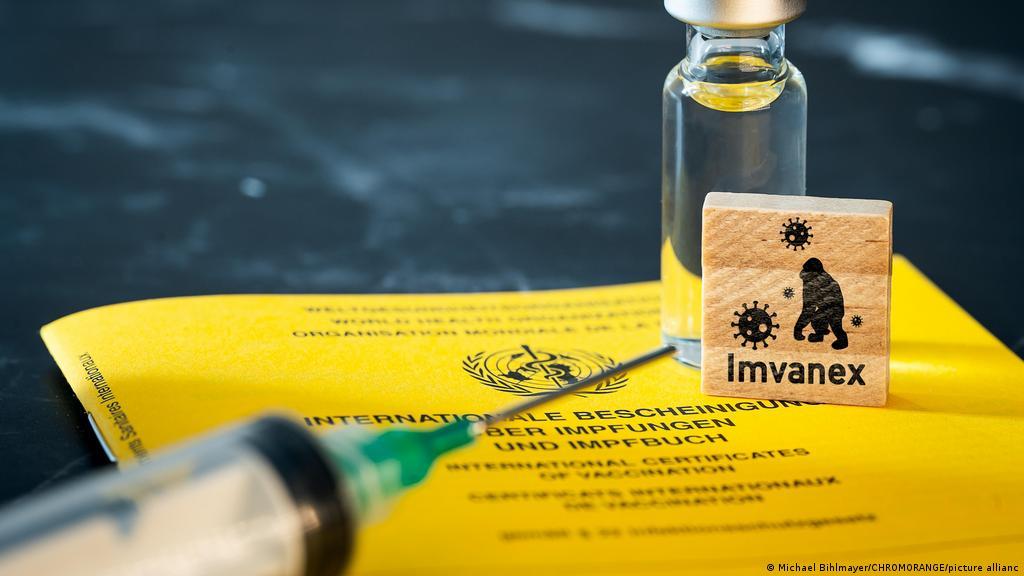EMA’s human medicines committee (CHMP) has recommended extending the indication of the smallpox vaccine Imvanex to include protecting adults from monkeypox disease.
The medicine has been approved in the EU since 2013 for the prevention of smallpox. It contains an attenuated (weakened) form of the vaccinia virus called ‘modified vaccinia virus Ankara’, which is related to the smallpox virus. It was also considered a potential vaccine for monkeypox because of the similarity between the monkeypox virus and the smallpox virus. The marketing authorisation holder is Bavarian Nordic A/S.
Study data
The CHMP based their recommendation on data from several animal studies which showed protection against the monkeypox virus in non-human primates vaccinated with Imvanex. The CHMP considered that the effectiveness of Imvanex in the prevention of monkeypox disease in humans could be inferred from these studies.
To confirm the effectiveness of the vaccine against monkeypox, the company will collect data from an observational study that will be carried out during the ongoing monkeypox outbreak in Europe.
The safety profile of the medicine is favourable, with mild to moderate side effects, and the CHMP concluded that the medicine’s benefits are greater than the risks.
In addition to the use for the prevention of monkeypox, the CHMP recommended authorising Imvanex to protect people against disease caused by vaccinia virus, which leads to symptoms similar to, but milder than those of smallpox.
Where to find more information
The product information for Imvanex will be updated shortly with information for healthcare professionals and members of the public.
An assessment report with details of EMA’s evaluation of Imvanex will be published on the EMA website.
More information will be available in an overview of the vaccine in lay language, including a description of the vaccine’s benefits and risks and why EMA recommended its authorisation in the EU.
More about Imvanex
Imvanex prepares the body to defend itself against infection with the variola (smallpox), monkeypox and vaccinia viruses. It contains an attenuated form of the vaccinia virus called ‘modified vaccinia virus Ankara’, which is closely related to the smallpox and monkeypox viruses but does not cause disease in humans and cannot reproduce in human cells.
Because of the similarity between the virus in this vaccine and these viruses, antibodies produced against it are expected to protect against monkeypox, smallpox and vaccinia.
When a person is given the vaccine, the immune system recognises the virus in the vaccine as ‘foreign’ and makes antibodies against it. When the person later comes into contact with similar viruses, these antibodies, together with other components of the immune system, will be able to kill those viruses and help protect against disease.
More about monkeypox
Monkeypox is a rare disease caused by infection with the monkeypox virus, which causes symptoms similar to those of smallpox. Monkeypox begins with fever, headache, muscle aches, exhaustion and lymph node swelling. A rash commonly develops one to three days after the onset of fever, first appearing on the face and spreading to other parts of the body, including hands and feet.
Monkeypox can be fatal, even though it is typically milder than smallpox.
It is transmitted to people from various wild animals, such as rodents and primates, but can also be transmitted between people following direct or indirect contact. Current outbreaks reported since May 2022 are the first reported outside of Africa with no links to endemic areas.






